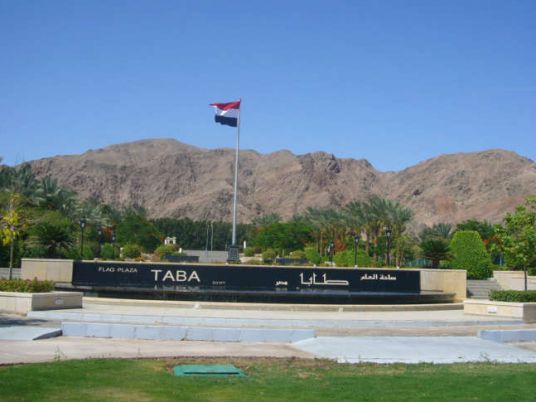Abdallah Gahama, chief of the Tarabeen tribe in Sinai, urged tribal chiefs in central Sinai to try and diffuse tensions after seven of their members were sentenced to life for several charges.
The charges include illegal possession of weapons and ammunition, use of violence against policemen, theft of government documents and resistance to security officers, during the recent Shura Council mid-term election. The charges come amidst prevalent tensions in the peninsula between Bedouin tribesmen and the police.
Gahama said that the fact that it took less than three days to hand out the sentences has added to the general feelings of anger. However, he added that all parties should have the national interest at heart. He further said that tribal chiefs should work on trying to avoid an escalation of the situation, particularly if the security forces decide to reduce or drop the sentences which were handed down in absentia.
Gahama called on Mubarak to intervene and overturn the rulings, while Moussa al-Dalah, a spokesperson for the same tribe, said there is a need to look for political solutions to the tribe’s problems.
A security source denied that trucks at al-Ouja crossing were fired at by wanted members of Sinai tribes as reported by some news agencies two days ago.
Meanwhile, the Israeli government has warned its citizens against traveling to Sinai during the Jewish feasts which run from mid-September to October, claiming the area is unstable.
Tourism experts and political analysts have said these warnings are intended to ruin the tourist season in Egypt. Security bodies are attempting to abdicate responsibility for any potential attacks by issuing these warnings, they added.
Al-Arabi al-Husseini, head of the Nuweiba and Taba city council, said these repeated warnings are a deliberate attempt to reduce numbers of Israeli tourists for whom a vacation in the Sinai is a much cheaper option than holidaying at home.
Al-Husseini said that the resorts of Nuweiba and Taba were prepared to receive up to 40,000 Israeli tourists this year, but have only so far received 15,000. He added, “Fortunately, these warnings affect the decisions of Israeli tourists but not those from Europe and the US.”
Sami Mahmoud, head of the international tourism sector, said that warnings like this are used as a weapon by Israel, adding that there appears to be a link between the timing of these warnings and current activity at the political level. He said the warnings don’t really have an impact on the tourism market in Egypt which has been expanding at a higher rate than the international tourism as a whole.
Mohamed Bassiouni, Egypt’s former ambassador to Israel, said that while security bodies in Israel issue such warnings to abdicate responsibility for any attacks that might take place, he could not entirely rule out the possibility that Israel may have intelligence information about possible attacks.
Ibrahim al-Bahrawi, an expert in Israeli affairs, said that Egypt’s prominent role in brokering the direct peace negotiations could be a possible motive for these warnings. The Israelis might also have concerns about attacks that are intended to deal a blow to Egypt as a peace sponsor, he added.
Translated from the Arabic Edition.



